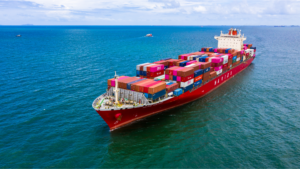
Business analytics has revolutionized international trade by enabling more informed decision-making, effective risk management, and optimized supply chain processes. The transformative power of data analytics is evident from specific case studies illustrating its crucial role in shaping the dynamics of global trade.Transforming International Trade with Big Data Analytics.
Predicting the Future of Trade
In their groundbreaking study, Özemre and Kabadurmus (2020) provide a deep dive into how big data analytics can be harnessed for strategic decision-making in international trade. The method they propose centers around the use of forecasting and market analysis, both powered by the processing and interpretation of large datasets. By employing predictive modeling, businesses are able to anticipate market trends and patterns, thus gaining a competitive edge. For example, by analyzing past trade volumes and price fluctuations, companies can forecast future demand and adjust their strategies accordingly, ensuring they remain one step ahead in the fast-paced world of global commerce (Emerald Insight).
Case Study: Spinning Success in Indian Cotton
R Singh (2020) focuses on the Indian cotton industry to showcase the impact of data analytics on trade decision-making. By leveraging methodologies from the World Bank and the International Trade Center, stakeholders in the cotton market have been able to dissect vast datasets pertaining to exports and imports. The methodologies employed may include data mining techniques to uncover patterns, trends, and associations in trade data, which can influence the decision-making of traders. For instance, analyzing weather patterns alongside trade data could help predict crop yields and, in turn, influence global cotton prices and trading strategies. The outcome is a more efficient market with data-driven strategies that help traders and producers maximize their returns, and in turn, support the broader agricultural economy of India (Emerald Insight).

Navigating Risks with Data
Dicuonzo et al. (2019) explore the pivotal role of big data analytics in the realm of risk management. By integrating predictive analytics, businesses can now identify potential risks before they materialize. This proactive approach is particularly crucial in international trade, where market volatility can significantly impact business outcomes. For instance, analytics can help predict currency fluctuations or political instabilities that might affect trade agreements, allowing companies to mitigate these risks through strategic planning and decision-making (ResearchGate).
Supply Chain Optimization in the Digital Era
Xie and Chen (2022) delve into the application of an IoT-based economic logistics model that revolutionizes supply chain management. By integrating sensors and data analytics into the supply chain, real-time data can be used to monitor, track, and optimize the flow of goods. This level of analytics allows for adjustments in supply chain operations to be made on the fly, reducing waste and improving efficiency. For example, if analytics indicate a delay at a certain supply chain node, alternative routing can be initiated promptly, thus ensuring timely delivery and maintaining customer satisfaction (NCBI).
In each case, data analytics methods provide a powerful toolkit for deciphering the complexities of international trade. Predictive modeling, big data analysis, predictive analytics, and real-time data analytics are just a few examples of how modern technology is used to turn data into actionable insights, driving smarter business decisions and fostering a more resilient global trade system.
Incorporating data analytics into international trade is not merely a trend; it’s a paradigm shift that’s redefining how global business is conducted. From strategic forecasting to supply chain optimization, the power of data is unlocking new potentials and paving the way for a smarter, more efficient trade ecosystem.